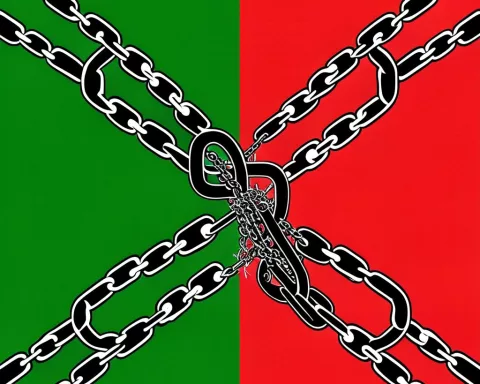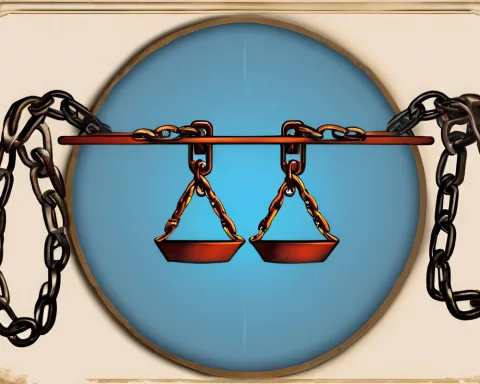South African taxpayers are feeling the heat as they face tough times with rising costs and a struggling economy. With only about seven million taxpayers supporting over 27 million people receiving government aid, the financial burden is heavy and unsustainable. High unemployment rates add to the pressure, as many turn to social grants instead of jobs. To improve this situation, South Africa needs urgent changes, like cutting wasteful spending, boosting job creation, and investing in education. By working together, the country can find a way to balance support for those in need while building a stronger economy for everyone.
What are the main challenges facing South African taxpayers today?
South African taxpayers face significant challenges, including a disproportionate taxpayer-to-grant recipient ratio, high unemployment rates, and increasing financial pressure from social grants. The government spends over R250 billion annually on grants, raising concerns about sustainability and economic viability amidst rising taxation and limited job creation.
The Imbalance in South Africa’s Economic Landscape
The socio-economic terrain of South Africa presents a series of formidable challenges, emphasizing the growing burden on taxpayers and revealing deep-seated inequalities. Since the African National Congress (ANC) assumed power in 1994, the nation’s grant system has expanded significantly, resulting in considerable pressure on the working populace. This financial strain arises from the mismatch between the limited number of taxpayers and the soaring count of grant recipients, raising critical concerns about the long-term sustainability of South Africa’s current economic framework.
South Africa’s demographic structure, encompassing around 60 million people, features a relatively small fraction of registered taxpayers. Data from the South African Revenue Service (SARS) 2023 Tax Statistics Report indicates that approximately seven million individuals make substantial contributions through personal income tax. In stark contrast, the government distributes social grants to over 27 million citizens. This stark disparity—where nearly four times more people receive state aid than contribute to it—casts doubt on the enduring viability of the country’s economic model.
The history of social grants in South Africa tells a story of dramatic expansion. Prior to the ANC’s rise to power, social grants were minimal. Over the past three decades, these grants have surged by over 1,000%. Currently, the government provides various grants, such as the Child Support Grant (benefiting over 13 million individuals), Old Age Pension (around 4.5 million recipients), Disability Grant (supporting over one million people), and the Social Relief of Distress (SRD) Grant, introduced in 2020, which has aided millions. This broad network of support demonstrates a commitment to combating poverty and inequality, but it also presents significant financial challenges.
Financial Implications and Economic Strain
Annually, the government pours over R250 billion into social grants, with expenses steadily rising. This escalating financial obligation carries profound implications, especially against a backdrop of high taxation, economic turbulence, and governance issues. Between 2020 and 2023, the emigration of over 6,500 high-net-worth individuals from South Africa notably impacted tax revenue. The departure of skilled professionals and business owners intensifies the fiscal strain, as the economy grapples with creating sufficient job opportunities and retaining talent.
The unemployment rate in South Africa remains among the highest globally, hovering around 32%, with youth unemployment exceeding 60%. The scarcity of employment prospects pushes more individuals onto government grants rather than into stable jobs, perpetuating a dependency cycle. This situation has multifaceted economic repercussions, including increased tax pressure on the middle class, discouraging investment and entrepreneurship, and contributing to growing fiscal deficits as social spending surpasses revenue generation.
As these complexities unfold, South Africa faces significant long-term challenges. Economic stagnation looms, exacerbated by a burgeoning grant system and lagging job creation and business growth. The increased tax burden on the middle class further discourages investment and entrepreneurial ventures, stifling economic dynamism. The sustainability of this financial model remains questionable, necessitating urgent reforms to prevent fiscal disaster.
Urgent Reforms to Alleviate Financial Strain
Addressing government inefficiencies stands out as a crucial reform area. Reducing unnecessary expenditures, halting bailouts for failing state-owned enterprises, and eradicating corruption at all levels are essential measures. Ensuring effective utilization of funds can significantly alleviate financial pressures. Moreover, expanding the tax base by fostering business growth and job creation is vital. Encouraging investment through stable policies and incentives for entrepreneurship can stimulate economic activity, generating much-needed revenue and employment opportunities.
Enhancing skills development represents another critical reform strategy. Investing in education and training can equip individuals with the competencies necessary for the modern workforce, thereby reducing unemployment and reliance on grants. By fostering a skilled and adaptable labor force, South Africa can promote economic resilience and sustainability. These reforms require a collaborative effort involving government, business, and civil society to forge a path toward a more equitable and prosperous future.
Balancing Historical Legacy and Economic Pragmatism
Navigating these challenges necessitates understanding the historical and cultural context of South Africa’s social grant system. The ANC’s commitment to social justice and equality is deeply rooted in the struggle against apartheid, reflecting a profound dedication to uplifting marginalized communities. This historical legacy shapes contemporary policy decisions, emphasizing the importance of social grants in addressing systemic inequities.
However, balancing social imperatives with economic pragmatism is critical for the sustainability of this approach. The creative tension between these goals can inspire innovative solutions, drawing from diverse intellectual traditions and historical experiences. For instance, Scandinavian social welfare models, which combine comprehensive social support with robust economic growth, offer valuable insights for South Africa’s policy landscape.
Additionally, the arts and humanities provide profound reflections on the human condition, illuminating the lived experiences of those reliant on social grants and enriching our understanding of economic policies. Literature, film, and visual arts capture the nuances of poverty, resilience, and hope, offering a tapestry of narratives that inform and inspire policy decisions.
South Africa stands at a crossroads, confronting significant economic challenges and opportunities for transformative change. The current taxpayer-to-grant recipient ratio underscores the urgent need for reforms to establish a sustainable economic model. By addressing government inefficiencies, expanding the tax base, encouraging investment, and enhancing skills development, South Africa can navigate these complexities and forge a path toward a more equitable and prosperous future. The historical and cultural dimensions of the social grant system, coupled with insights from global models and the humanities, can guide this journey, ensuring that economic policies are both effective and humane.
In summary, the country’s economic future hinges on comprehensive reforms and a balanced approach that honors its historical commitments while embracing pragmatic economic strategies. The road ahead is fraught with challenges, but with concerted effort and innovative thinking, South Africa can overcome these hurdles and achieve lasting prosperity and social justice.
“`markdown
FAQ on the Mounting Pressure on South African Taxpayers
What is the current taxpayer-to-grant recipient ratio in South Africa?
The current ratio is alarming, with approximately seven million taxpayers supporting over 27 million grant recipients. This means that nearly four times as many people receive government assistance compared to those who contribute through taxes.
Why is the financial burden on South African taxpayers considered unsustainable?
The financial burden is deemed unsustainable due to high levels of government spending on social grants, which exceeds R250 billion annually. Coupled with rising taxation, limited job creation, and high unemployment rates, this creates a precarious financial situation that raises concerns about long-term economic viability.
How has the social grant system evolved in South Africa since 1994?
Since the African National Congress (ANC) came to power in 1994, the social grant system has expanded dramatically, increasing by over 1,000%. Various grants now support millions of South Africans, including the Child Support Grant, Old Age Pension, Disability Grant, and the Social Relief of Distress Grant introduced in 2020.
What are the main economic challenges contributing to high unemployment in South Africa?
South Africa faces several economic challenges, including a high unemployment rate of around 32%, with youth unemployment exceeding 60%. A lack of sufficient job opportunities, compounded by the emigration of skilled individuals and a heavy reliance on social grants, perpetuates a cycle of dependency and economic stagnation.
What urgent reforms are suggested to alleviate the financial strain on South African taxpayers?
Proposed reforms include reducing government inefficiencies, cutting wasteful spending, eliminating bailouts for failing state-owned enterprises, and combating corruption. Additionally, expanding the tax base through business growth and job creation, as well as investing in education and skills development, are critical for fostering long-term economic resilience.
How can South Africa balance its historical commitment to social justice with economic pragmatism?
Balancing social justice with economic pragmatism requires innovative solutions that consider historical contexts. Learning from global models, such as Scandinavian welfare systems that integrate social support with economic growth, can help. Emphasizing effective policies and integrating cultural narratives from the arts and humanities can also inform a more humane economic strategy that uplifts marginalized communities while ensuring sustainability.
“`












